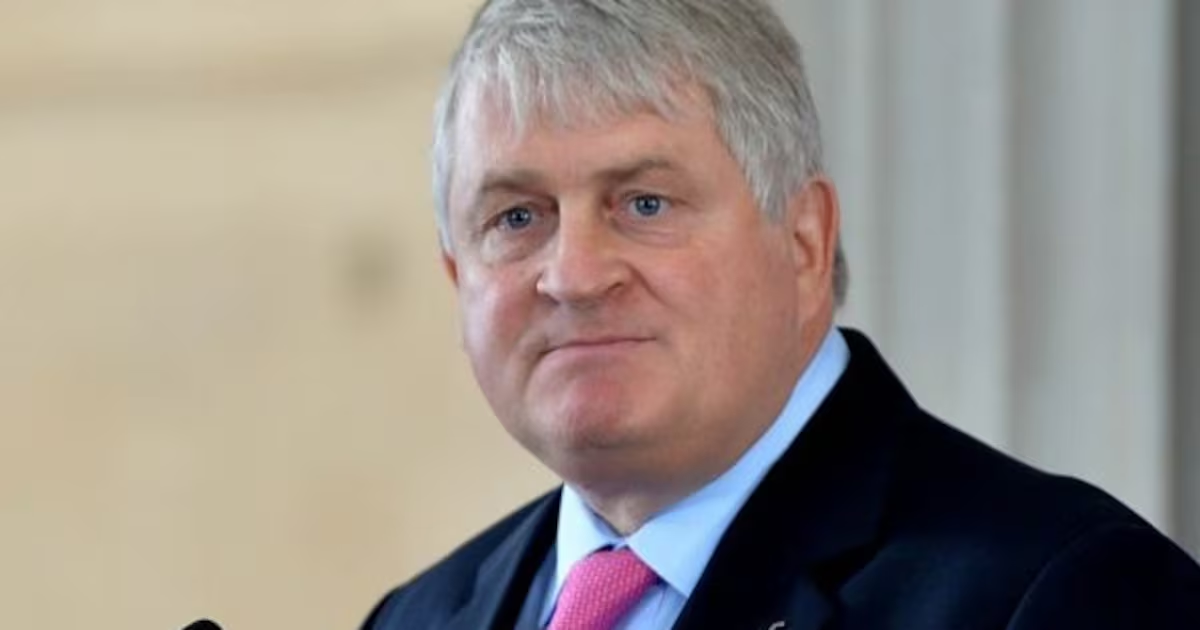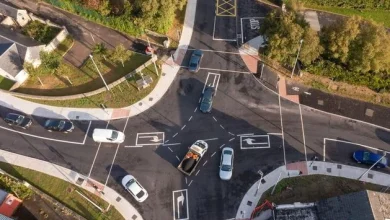Ireland’s graduates ‘entitled’ and tax regime ‘digital colonialism’ – Denis O’Brien

Businessman Denis O’Brien has described graduates emerging from Ireland’s colleges as “entitled” and referred to the State’s corporate tax regime as “digital colonialism” in a broad-ranging speech on Tuesday on the challenges facing the country.
The entrepreneur, whose interests span telecoms to golf resorts, criticised the “lack of joined-up thinking” as the Republic grapples with infrastructure shortfalls in electricity, water and housing, and spoke of a “two-speed Ireland” as the private sector “gets things done” as the public sector stalls.
The country’s planning laws are “severely holding back the country”, as big projects are affected by judicial reviews and long delays, he said in a 45-minute speech at a conference organised by the Business Post in Dublin. While the Government is currently progressing a blueprint to curtail judicial reviews of planning decisions, the businessman said urgency is required.
“In Ireland, we need to reform all parts of the Government and its administration,” he said.
“We also need to plan for the next economic downturn, which, I believe, is likely to be soon. We just cannot ignore what’s happening in the wider world. We now need the combination of political leadership, accountability, a radical sense of urgency and external expertise.”
Irish citizens’ work ethic is in decline and graduates “have become entitled”, dictating in a lot of job interviews when they would be available to work in the office, he said. He said workplace policies are being led by “weak” human resources people “who also want to work from home”.
“The system is mostly being gamed,” he said. “Nearly every CEO of FDI [foreign direct investment] companies or Irish businesses that I speak to these days says that we have a big problem, which, should it continue, will greatly impact Ireland’s FDI and reputation as a hard-working country.”
[ John Collison of Stripe: Ireland is going backwards. Here’s how to get it movingOpens in new window ]
Mr O’Brien also took aim at the State for being “complicit in facilitating global tax avoidance” by big US technology giants as they book revenues and profits here on sales taking place elsewhere, including poor African countries.
Will Imagine’s big gamble double its customer base?
“This is perfectly legal and within OECD rules,” he said, referring to the Organisation for Economic Co-operation and Development. “But the question is: is it acceptable? It is modern-day digital colonialism.”
He said the system is contributing to “gross inequality” and is “the main reason why African immigrants take huge risks in dinghies to reach rich European countries”.
But while he noted that tech giants having data centres in Ireland are part of the system and something needs to be done to address tax-collection concerns, he insisted that the Republic needs to become a European leader in data centres.
[ EU set to water down landmark AI Act after pressure from big techOpens in new window ]
“AI [artificial intelligence] is driving an avalanche in demand for data centres,” he said. “Without a national data centre strategy, we are cutting off future AI investments. Data centres will be a huge driver of FDI and key to our digital services economy.”
He noted there are more than 10 data centres waiting to be connected to the electricity grid, and more awaiting connection to the gas network.
Mr O’Brien said the Government should ask big Irish companies to make specialist senior managers available for secondment to help oversee big projects.
“The lack of housing is the biggest impediment to our competitiveness and our society,” he said. “We will not be able to grow our economy if people don’t have places to live.”
Mr O’Brien said that if Ireland is to develop a new wave of big indigenous companies, entrepreneurs need access to a tax-efficient “equity release scheme” to take money off the table at a relatively early stage.
He said the current prevalence of Irish entrepreneurs “selling out to foreign buyers for €50 million-€100 million, and not going the whole hog to become a €1 billion company”, will continue if this is not addressed.
“I can see no reason why in this country we cannot develop 15 to 20 unicorns, of $1 billion-plus (€860 million) value, in the next 10 years if growth capital were available,” he said. “These companies would go some way to offset the dependency on our very valuable FDI sector.”
Most of Mr O’Brien’s wealth stems from netting more than €200 million from the sale of Esat Telecom, which he founded, to BT Group in 2000 and going on to set up Digicel in Jamaica the following year.
He extracted at least $1.9 billion of dividends from Digicel between 2007 and 2015. While a big debt restructuring saw the businessman cede 90 per cent of Digicel to a group of bondholders in January 2024, his holding could rise to 20 per cent if certain performance conditions are met.
His remaining big assets include engineering services company Actavo (formerly known as Siteserv), the Quinta do Lago golf resort in the Algarve in Portugal, the Camiral golf resort in northern Spain, and a collection of other real-estate interests.





